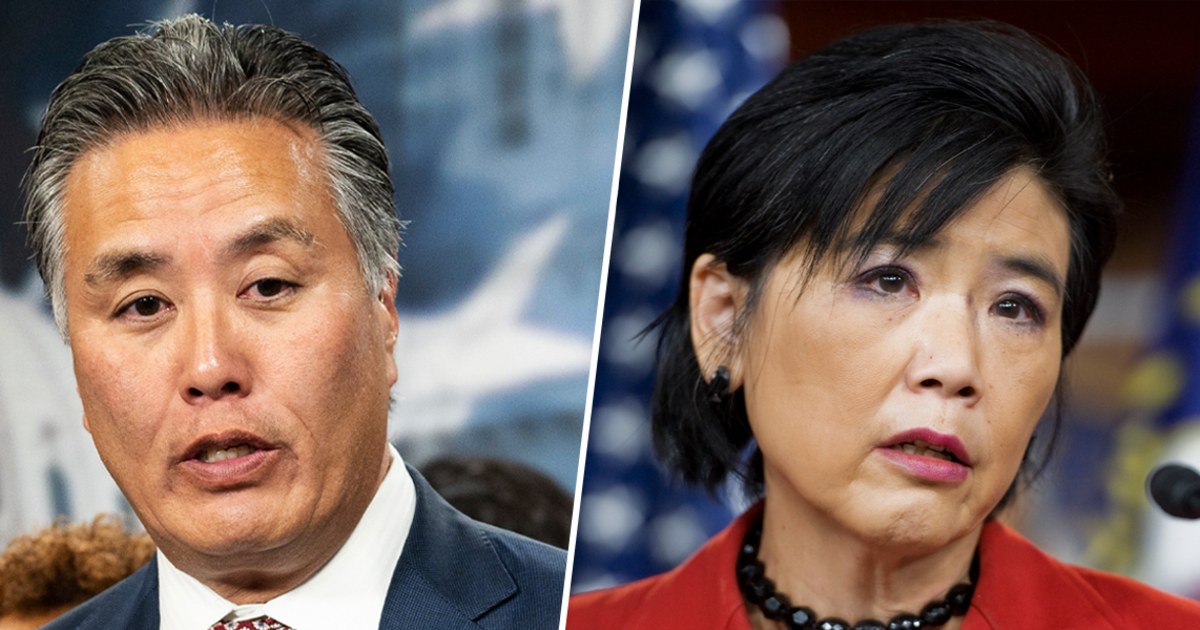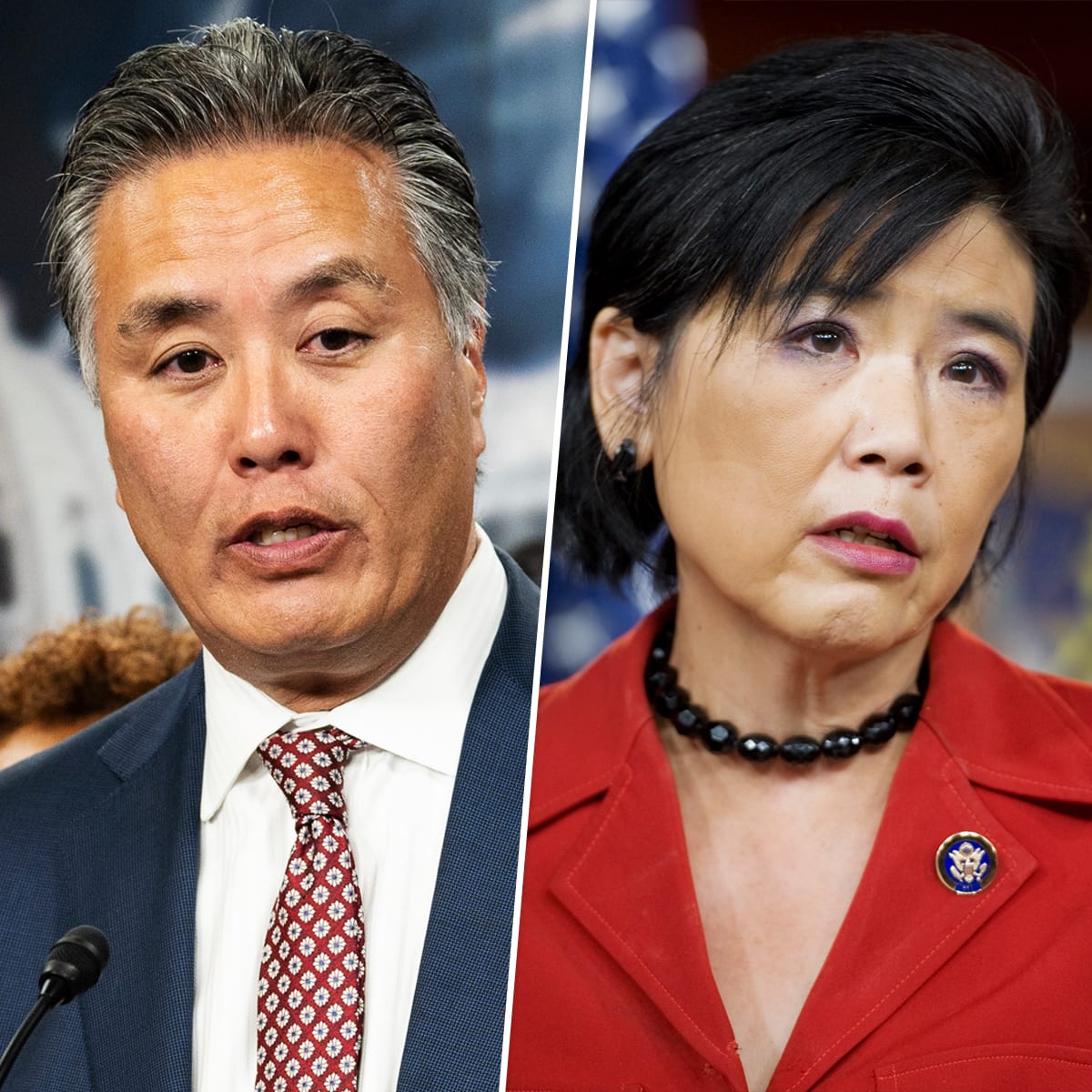
Asian American lawmakers said they were worried about those from marginalized communities when a pro-Trump mob breached the U.S. Capitol on Wednesday.
Members of the Congressional Asian Pacific American Caucus, or CAPAC, were in the middle of counting the Electoral College votes when the mob swarmed the building, prompting some lawmakers, journalists and others to evacuate. The attack could certainly have been cause for concern for lawmakers of color, in particular, they said.
“Let’s face it … the crowd was largely an angry white crowd and quite menacing,” said Rep. Mark Takano, D-Calif., who was in his office and away from the Capitol at the time.
He added, “I think members who are racial minorities, whether Asian, Latino or African American, I certainly think seeing a crowd like that, a crowd that was angry, largely white, with grievances, certainly would have been unnerving, to say the least.”
The rioters, many of whom marched into the building with Confederate flags, nooses and weapons, entered the legislative chambers, even breaking into House Speaker Nancy Pelosi’s office. A member of CAPAC who was in the Capitol at the time, Rep. Grace Meng, D-N.Y., said in a statement that she had never “been more enraged and terrified” while she was barricaded for hours in a hiding place as rioters chanted “USA” outside the door.
Rep. Judy Chu, D-Calif., the chair of CAPAC, said President Donald Trump has previously used racist rhetoric like “China virus,” which has been linked to hate incidents directed toward Asian Americans. And she said it was possible that supporters could take cues from Trump’s words.
“I think that they would have used all kinds of ugly reasons to target all kinds of people,” she said. “I think that they would target people of color. They would target somebody who they felt were immigrants. And certainly they might target AAPIs because of President Trump’s ugly rhetoric on the ‘Wuhan virus’ and ‘China virus.’ So there were all kinds of reasons that people could have been targeted, and certainly AAPIs could be one of them.”
In the months before Wednesday’s violence, Asian Americans had already been on edge because of heightened anti-Asian racism and sentiment. In five months last year, the reporting forum Stop AAPI Hate received 2,583 reports of anti-Asian incidents nationwide. Chu said that because the community is made up predominantly of immigrants, some of whom left countries with turbulent political systems, violence like that on American soil can be alarming.
“Many AAPI immigrants have come from countries where there were dictatorships or where there was not a democratic process in place,” she said. “They came to America because that is what they wanted — they wanted the rule of law, a stable living that could make sure that their families can live for generations in peace.”
Takano said many his Asian American constituents have expressed disappointment in Trump’s conduct, comparing the U.S. political climate to the ones they left behind. Takano recalled walking with a group of first-generation Filipino Americans in his district four years ago when one of them said she was surprised by Trump’s behavior but simultaneously found it familiar.
“She said: ‘Congressman, we thought we were leaving this behind in the country we came from. We didn’t expect to find this here in America,'” he said.
“My message to those ladies and their children … is that we can’t take for granted what is here in America. It’s very clear that with Donald Trump that we can’t take for granted,” he said. “Democratic institutions, they can atrophy, and they can break down. Democratic norms can break down.
“Immigrant communities have an important contribution to make, in terms of wanting to leave behind corruption, wanting to leave behind failed leadership, false leadership, fake leadership, and [their] participation in civic life in this country is going to be vital for us to get our democracy back on track,” he said.
Takano cited Asian American voter turnout in Georgia as an example of the strength of the community, saying he felt that the mob “overshadowed the really amazing victories” in the state.
Research shows that the group played a critical role in certain districts, specifically the historically Republican 7th District. An election eve poll released by the AAPI Civic Engagement Fund found that Asian Americans strongly favored Democratic congressional candidate Carolyn Bourdeaux, making up 150 percent of her winning margin. A further breakdown of the data found that 2 of 5 Asian Americans in the district were first-time voters. If Asian Americans hadn’t voted at all, Bourdeaux would have lost by 52 percent to 48 percent, the research found.
“AAPIs continued to turn out and reflect the numbers of the November election,” Takano said. “And very clearly, Raphael Warnock and Jon Ossoff were elected with this multiracial coalition in which AAPIs were definitely a significant part. And minus this mob attack on our Capitol, which desecrated our temple of democracy, we would have been able to amplify this tremendous turnout.”
Chu said Trump has long sowed the seeds of division, planting the idea that the election was invalid. Takano echoed her thoughts, noting that Trump tweeted weeks ago that there would be a “Big protest in D.C. on January 6th” and called on protesters to “Be there, will be wild!” And that’s exactly what it was, he said. Both lawmakers firmly called for Trump to be removed from office.
While several Republican senators withdrew their objections to the Electoral College count after the violence, further steps must be taken to ensure that democracy stays intact, Takano said.
Source: | This article originally belongs to Nbcnews.com









